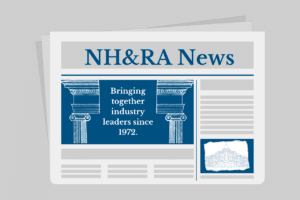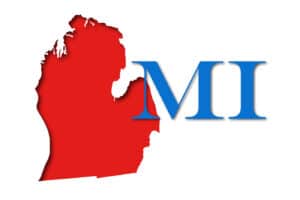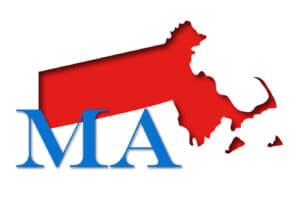General News

Rhode Island Legislation Would Remove Sunset Date from State HTC
A bill in the Rhode Island General Assembly (H.B. 5458) would eliminate the sunset provision for the State Historic Tax Credit (HTC). The credit is currently set to expire when the maximum aggregate credits are exhausted or June 30, 2021, whichever comes first. The measure has been referred to the House Finance Committee, which has […]

South Carolina Issues Revenue Ruling on State LIHTC
The South Carolina Department of Revenue released a revenue ruling to provide guidance for the State LIHTC, which was enacted in May 2020. Revenue Ruling 21-5 provides an overview of the Federal and State LIHTC. The revenue ruling provides questions and answers on such issues as what constitutes a qualified project, information about an eligibility […]

Virginia Creates State LIHTC
The Virginia legislature recently approved a bill to create a State LIHTC, sending the legislation to Gov. Ralph Northam’s (D) desk. S.B. 1197 creates the Virginia housing opportunity tax credit with a $15 million annual allocation for five years. The credit would be effective for taxable years beginning on or after January 1, 2021, and […]

New York Times Article Highlights Pandemic’s Impact on Low-Income Renters
In “Pandemic’s Toll on Housing: Falling Behind, Doubling Up,” the New York Times draws attention to the housing insecurity renters face as a result of the COVID-19 pandemic, even with eviction moratoriums in place.

New SAHF Report Equity and Well-Being in Affordable Housing: Starting with Voice and Choice
Through focus groups with residents and interviews with front line staff, Stewards of Affordable Housing for the Future (SAHF) has identified some early steps for lifting up the voice and agency of residents of affordable housing properties in a new report and blog post.

Michigan Extends HTC Through 2030
Gov. Gretchen Whitmer (D) of Michigan signed legislation extending the state’s Historic Tax Credit (HTC) through 2030. S.B. 54 allows a qualified taxpayer with a certificate of completed rehabilitation issued after December 31, 2020 and before January 1, 2031, to credit against the income tax or Corporate Income Tax (CIT) 25 percent of the qualified expenditures that met eligibility criteria […]

LIIF Announces $20 Million Bridge to Help Liquidity for LIHTC Developers
The Low Income Investment Fund (LIIF) said it has launched a $20 million COVID-19 LIHTC Developer Fee Bridge Initiative to support affordable housing developers facing liquidity challenges in the wake of the Coronavirus pandemic and ensuing recession. LIIF said in a press release that with a guarantee from the Community Investment Guarantee Pool (CIGP), the flexible capital would be available to fill gaps created when fees are stalled in phases of LIHTC development.

Freddie Mac White Paper Highlights LIHTC in Rural Counties
Freddie Mac released a white paper Dec. 10 that found LIHTC supports 40.1 percent of the multifamily housing market in rural Persistent Poverty Counties (PPCs) – a rate that is more than three times greater than the national average and one and a half times greater than all rural areas.

NHT Partners with Leading Age on Analysis of Incentives for Older Adults in QAPs
National Housing Trust partnered with Leading Age to analyze the QAPs from all 50 states to see how Housing Credit Allocating Agencies use LIHTCs to encourage the production and preservation of affordable housing specifically for older adults. The analysis revealed that:
Seven states have established a set-aside for creating or preserving affordable housing for older adults;
Twenty-seven states award points for creating or preserving affordable housing serving older adults;
Twenty states award points for providing certain features in affordable housing serving older adults; and
Three states provide a basis boost for crating or preserving affordable housing serving older adults.

CDFI Fund Releases Application Demand for CY 2020 Round of NMTC Program
The U.S. Department of the Treasury’s Community Development Financial Institutions Fund (CDFI Fund) announced that it received 208 applications under the calendar year (CY) 2020 round of the New Markets Tax Credit Program (NMTC Program).

JCHS Report: For Older Adults in Publicly Funded Housing During the Pandemic, Service Coordinators Help Build Resilience
A new report from the Joint Center for Housing Studies of Harvard University (JCHS) presents results from a survey conducted between June 23 and July 17, 2020 to explore the experiences of service coordinators during the early months of COVID-19.

New Report on Risk to Affordable Housing from Sea-Level Rise
The National Housing Trust and Climate Central released an analysis evaluating the risk to affordable housing from flooding related to sea-level rise over the next 30 years. The report found, among other items, that the number of affordable rental apartments at risk from coastal flooding and sea-level rise is expected to more than triple during the next three decades.